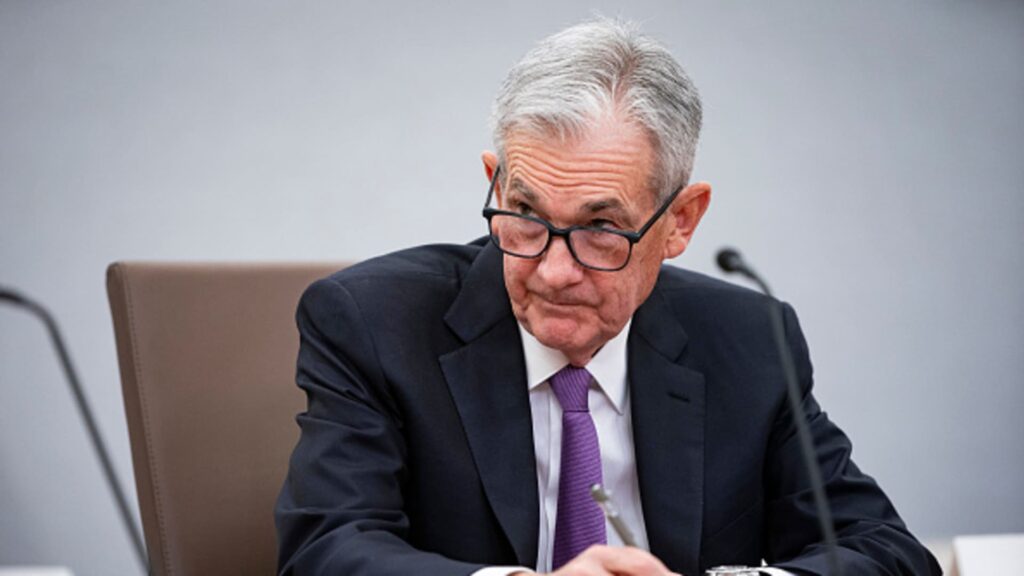Jerome Powell, Chairman of the US Federal Reserve, during the Fed Listens event in Washington, DC, US, Friday, March 22, 2024. Three central bank decisions this week sent a clear signal to markets that officials are preparing to ease policy. monetary policy reigniting investors’ appetite for risk.
Bloomberg | Bloomberg | Getty Images
Federal Reserve Chairman Jerome Powell said Wednesday that policymakers will take some time to assess the current state of inflation, so the timing of a potential interest rate cut remains uncertain.
Speaking specifically about stronger-than-expected price pressures at the start of the year, the central bank governor said he and fellow officials were in no rush to ease monetary policy.
Watch Fed Chairman Powell speak live at the Stanford Policy Conference Economic Forum
“On inflation, it is too early to tell whether recent figures represent anything more than a blip,” Powell said in remarks before a question-and-answer session at Stanford University.
“We do not expect it will be appropriate to cut our policy rate until we have greater confidence that inflation is steadily falling to 2 percent,” he added. “Given the strength of the economy and the progress in inflation, we have time to let the incoming data guide our policy decisions.”
The announcement came two weeks after the Federal Open Market Committee, which sets rates, again voted to keep benchmark short-term borrowing rates steady. In addition, the committee’s March 20 meeting statement included a “greater confidence” clause required before cuts.
“Bumpy Road”
Many markets expect the FOMC to begin easing policy this year, although they have had to revise their forecasts for the timing and size of cuts as inflation remains stubbornly high. Other economic variables, especially in the labor market and consumer spending, also remained in place, giving the Fed time to assess the current state of affairs before acting.
The Fed’s preferred measure of inflation, the personal consumption expenditure price index, showed a 12-month rate of 2.5% in February, or 2.8% for a core measure that excludes food and energy. Almost all other inflation indicators show rates exceeding 3%.
“Recent job growth and inflation data were higher than expected,” Powell said. “However, the latest data does not significantly change the overall picture, which continues to be characterized by robust growth, a strong but balancing labor market and inflation falling to 2 percent on a sometimes bumpy road.”
Other Fed officials speaking this week made remarks consistent with the Fed’s patient approach.
Atlanta Fed President Raphael Bostic told CNBC on Wednesday that he believes there may only be one cut in the near future as prices for some important commodities have risen. San Francisco Fed President Mary Daly said three cuts were a “reasonable baseline” but noted there were no guarantees, while Cleveland’s Loretta Mester also said cuts would likely occur later this year, adding that rates in the long term may be higher than expected. All three are FOMC voters.
Powell confirmed that decisions are being made “meeting by meeting” and said only that cuts “will likely be appropriate…at some point this year.”
Uncertainty over rates has caused some turmoil in markets, with stocks falling sharply earlier this week as Treasury yields rose. The market stabilized Wednesday, but traders in the fed funds futures market again overestimated their expectations for rates, raising some doubts about June’s decline as the market’s implied probability rose to about 54% at one point, according to CME Group data.
Elections ahead
In addition to commenting on rates, Powell spent some time discussing the Fed’s independence.
As the presidential election campaign heats up, Powell noted the importance of staying away from political issues.
“Our analysis is free from any personal or political bias and serves the public interest,” he said. “We won’t always get it right – no one does. But our decisions will always reflect our careful assessment of what is best for our economy in the medium to long term – and nothing more.”
He also talked about “mission creep,” particularly with regard to some requirement for the Fed to engage in climate change issues and prepare financial institutions for related events.
“We are not, and do not aspire to be, climate policymakers,” he said.
Correction: Powell’s remarks came two weeks after the Federal Open Market Committee again voted to keep rates steady. An earlier version had the time listed incorrectly. Raphael Bostic is the President of the Atlanta Fed. An earlier version misstated the city.


